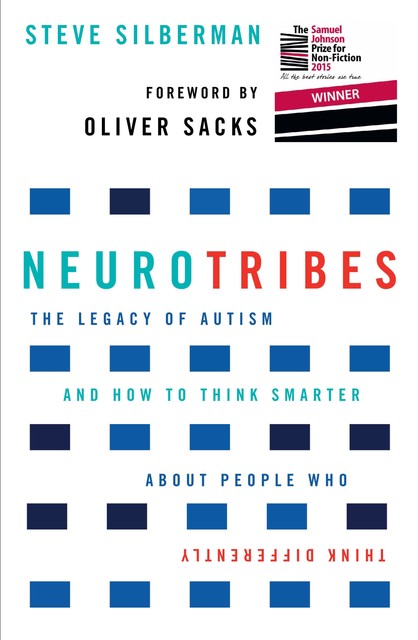NeuroTribes
Ця книжка зараз недоступна
720 паперових сторінок
- Правовласник
- Bookwire
- Дата публікації оригіналу
- 2017
- Рік виходу видання
- 2016
- Видавництво
- Allen & Unwin
Враження
- Nast Huertaділиться враженням6 років тому👍Раджу💀Страшна🔮Мудра💡Пізнавальна🎯Корисна🚀Неможливо відірватися💧Зворушлива
Цитати
- fluffyrageцитує2 роки томуWhen I was five years old, I was taking my electronic toys apart to see how they worked. (I also attempted to put them back together, with mixed results.) I have always been a voracious reader. I was reading college-level physics books bought at garage sales in the second grade. I used to annoy my father to no end wanting to build scale models of nuclear reactors, submarines, trains, anything you could think of. I have only had very small groups of close friends. I always considered that odd but never knew how to go about correcting it. Quite frankly, I find most people quite annoying and illogical—probably another common Asperger trait. :)
- Yaraцитує3 роки томуAs they were clearly not psychotic, Asperger coined the term Autistischen Psychopathen (“autistic psychopathy”) to describe their condition, employing a nineteenth-century term for the hazy borderland between mental health and illness. He also employed the simpler term Autismus and referred to it as a “natural entity,” like a field biologist describing a life-form he’d discovered flourishing in plain sight.
He pointed out that the distinctive characteristics of this natural entity were already familiar in stock characters from pop culture like the “absentminded professor” and Count Bobby, a fictitious aristocrat who was the butt of many Austrian jokes. Crucially, Asperger also described Autismus as remaining “unmistakable and constant throughout the whole life-span,” and said that it encompassed an astonishingly broad cross section of people, from the most gifted to the most disabled. There seemed to be nearly as many varieties of Autismus as there were autistic people.
The range [of this type] encompasses all levels of ability from the highly original genius, through the weird eccentric who lives in a world of his own and achieves very little, down to the most severe, contact-disturbed, automaton-like mentally retarded individual . . . Autistic individuals are distinguished from each other not only by the degree of contact disturbance and the degree of intellectual ability, but also by their personality and their special interests, which are often outstandingly varied and original. - Yaraцитує3 роки томуapplied behavior analysis (ABA), a form of behavior modification based on the animal-learning theories of B. F. Skinner and pioneered as an early intervention for autism in the 1960s by psychologist Ivar Lovaas at the University of California in Los Angeles.
fb2epub
Перетягніть файли сюди,
не більш ніж 5 за один раз


